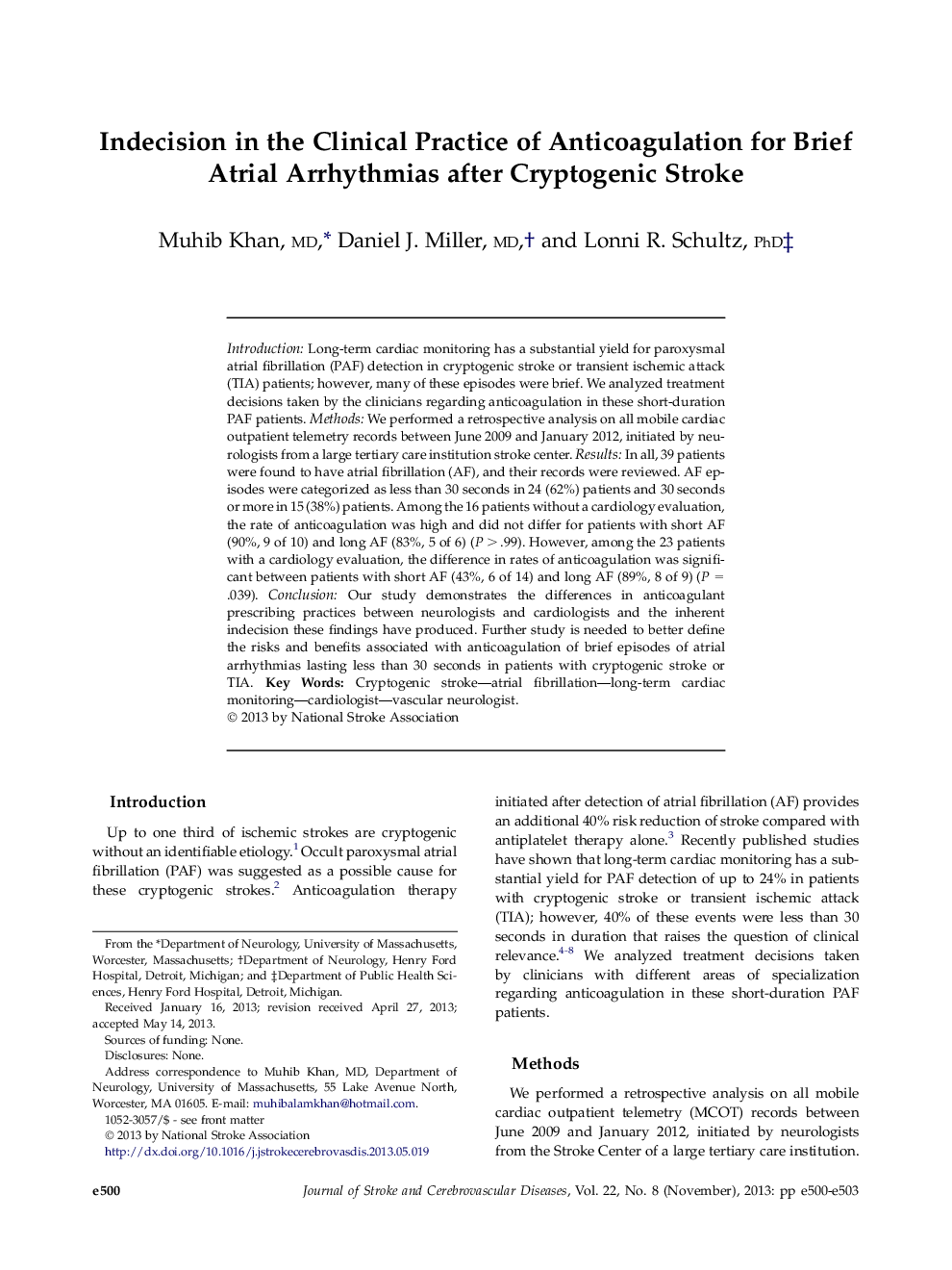| Article ID | Journal | Published Year | Pages | File Type |
|---|---|---|---|---|
| 2710676 | Journal of Stroke and Cerebrovascular Diseases | 2013 | 4 Pages |
IntroductionLong-term cardiac monitoring has a substantial yield for paroxysmal atrial fibrillation (PAF) detection in cryptogenic stroke or transient ischemic attack (TIA) patients; however, many of these episodes were brief. We analyzed treatment decisions taken by the clinicians regarding anticoagulation in these short-duration PAF patients.MethodsWe performed a retrospective analysis on all mobile cardiac outpatient telemetry records between June 2009 and January 2012, initiated by neurologists from a large tertiary care institution stroke center.ResultsIn all, 39 patients were found to have atrial fibrillation (AF), and their records were reviewed. AF episodes were categorized as less than 30 seconds in 24 (62%) patients and 30 seconds or more in 15 (38%) patients. Among the 16 patients without a cardiology evaluation, the rate of anticoagulation was high and did not differ for patients with short AF (90%, 9 of 10) and long AF (83%, 5 of 6) (P > .99). However, among the 23 patients with a cardiology evaluation, the difference in rates of anticoagulation was significant between patients with short AF (43%, 6 of 14) and long AF (89%, 8 of 9) (P = .039).ConclusionOur study demonstrates the differences in anticoagulant prescribing practices between neurologists and cardiologists and the inherent indecision these findings have produced. Further study is needed to better define the risks and benefits associated with anticoagulation of brief episodes of atrial arrhythmias lasting less than 30 seconds in patients with cryptogenic stroke or TIA.
